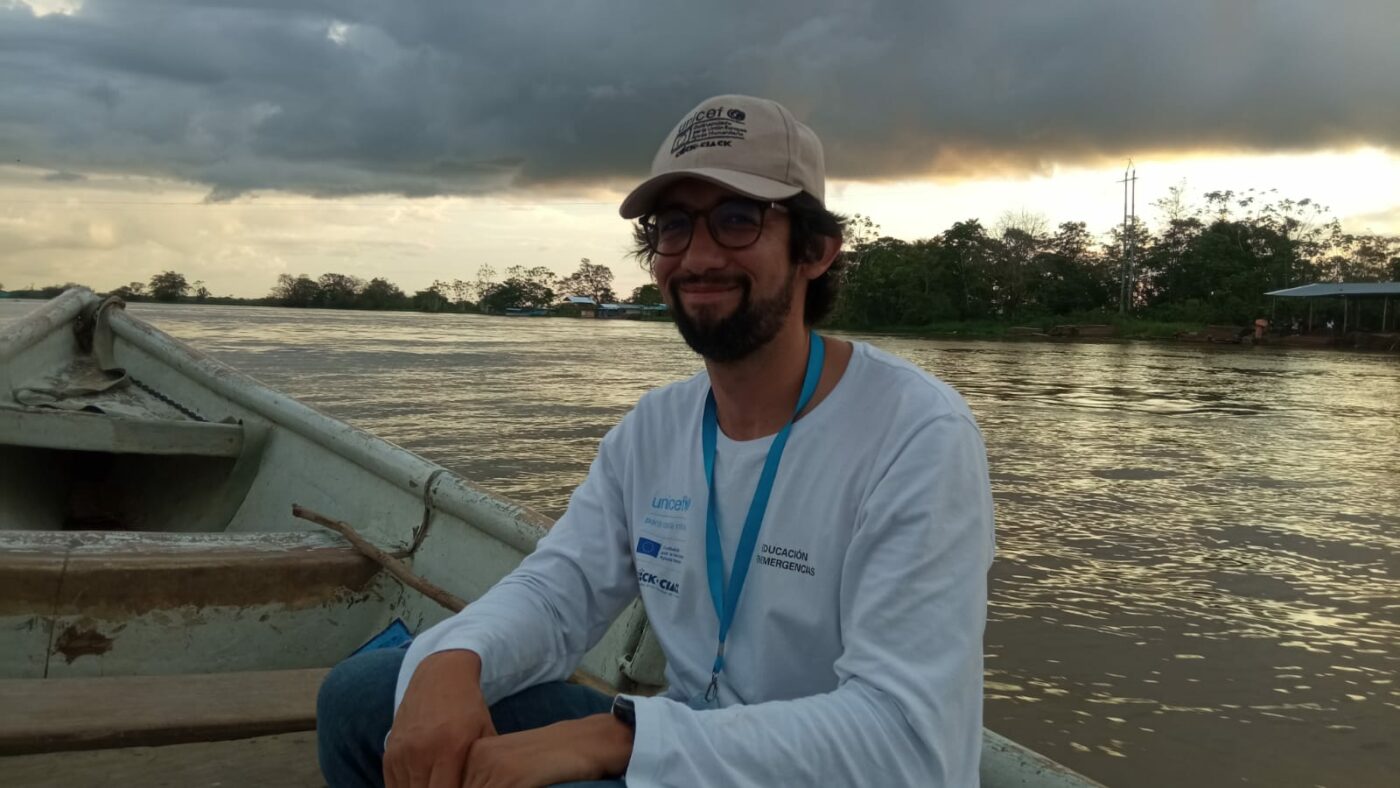“The river is the backbone of the people, it communicates, protects and threatens them.”
Ómar Ángel is one of the Click+Clack pedagogical mediators who is dealing with education in emergencies in some of Colombia’s most remote communities. The teacher training processes he has led and the meetings he has held with the communities have taken place in several municipalities in Chocó. We asked Ómar to tell us about his experience in one of those places, and above all, to narrate the space, time, emergencies, the comings and goings of a place that few have had the opportunity to experience and acknowledge.
Click+Clack: What is the most challenging or remote place you have ever had to visit?
Ómar Ángel: I would say the most challenging, because of the time, transportation, distance, etc., would be Riosucio, a municipality in Colombia located in the Urabá area in the department of Chocó.
C+C: How do you get to Riosucio?
OA: It can be reached by land or by river. By land, you have to get to a newly created municipality, which until December 31 belonged to Riosucio, called Belén de Bajirá, and from there continue by UAZ (old trucks that can be driven on any terrain). This journey lasts from 1 hour and 45 minutes to 2 hours and 30 minutes, depending on the state of the road. When the river rises, you cannot take this route because sections of the road disappear under the water. On this route, the dominant landscape is farms, banana plantations or cattle ranches. They raise buffaloes in several of these.
You can travel there by water from Turbo, in the north (the route I usually take), or from Quibdó, in the south. From Turbo, the boat (or panga, as they say in the region) takes a little over three hours, although the trip includes a stop in Bocas del Atrato to have fried fish for breakfast (fish is not included in the ticket price). This section of the Atrato River is full of jungle, although in some parts of the river there are banana and corn crops (those are the ones I am able to recognize). There are several farmhouses, and you can also see small wooden houses far away from everything. The river is the backbone of the people, it feeds them and takes away their waste, it allows them to communicate with their neighbors, it protects, and threatens them. Usually I arrive by river and leave by land, because when I visit Riosucio I also take the opportunity to go to Belén de Bajirá.
C+C: What is special about Riosucio? What emergencies does the community face?
OA: Riosucio is one of the oldest settlements in South America. Despite this, it is a town that seems forgotten by the world. Its streets are still made of dirt, and it can remain flooded for several months at a time. During my last few visits, the river was paying a visit and I had to test my balance to walk on the boards that are set up in the middle of the streets so that people can move around. Despite this being a common scene, this continues to influence the continuity of the educational career of the students. When it rains, classes are postponed or canceled, because walking on the slippery planks is dangerous, especially considering the number of children who must walk on them. The houses and schools are built on stilts, which saves them from flooding, but does not stop the impact of water on these wooden structures. There are still many houses and classrooms that are made of wood, and these buildings have to be continually repaired to prevent them from collapsing. There are temporary classrooms, which were built during an emergency 15 years ago, that are still used, but they constitute a risk due to so many years of use.
On another note, the threat of illegal groups is ever-present. The AGC marked almost all the houses in the town, as if wanting to warn locals and foreigners as to who the authority is. Certainly, they gave permission for us to arrive, so it is important to notify the principals and the authorities of our visits in advance. In the work to identify emergencies, this issue is not directly discussed; there is an obvious veto in this regard. Only one of the institutions spoke of the potential risk due to having a police station next door.
